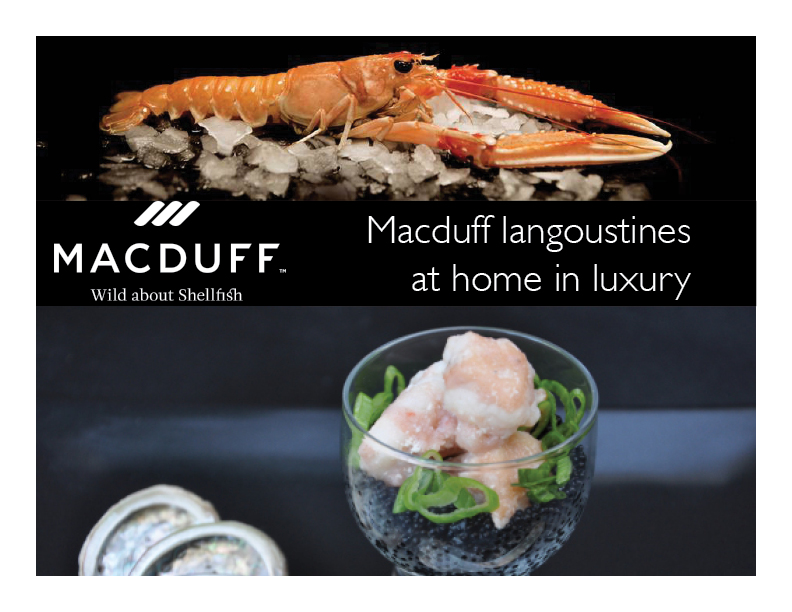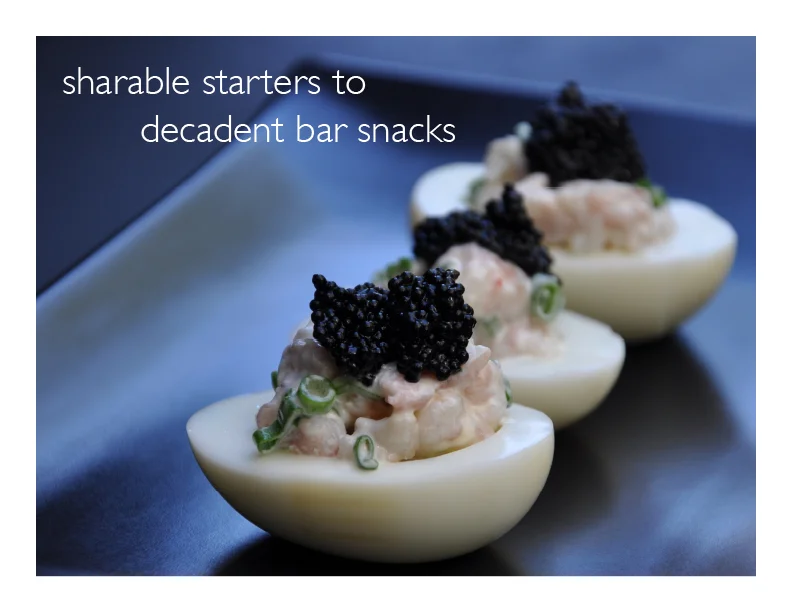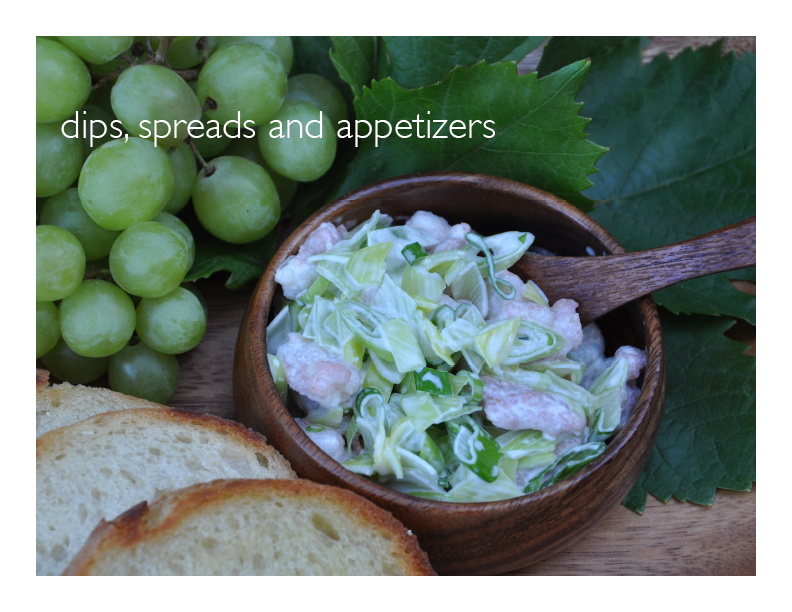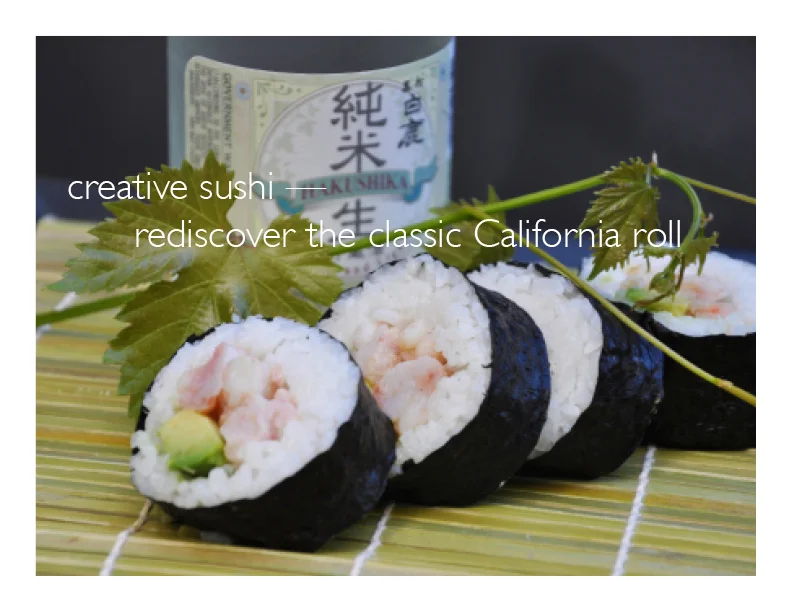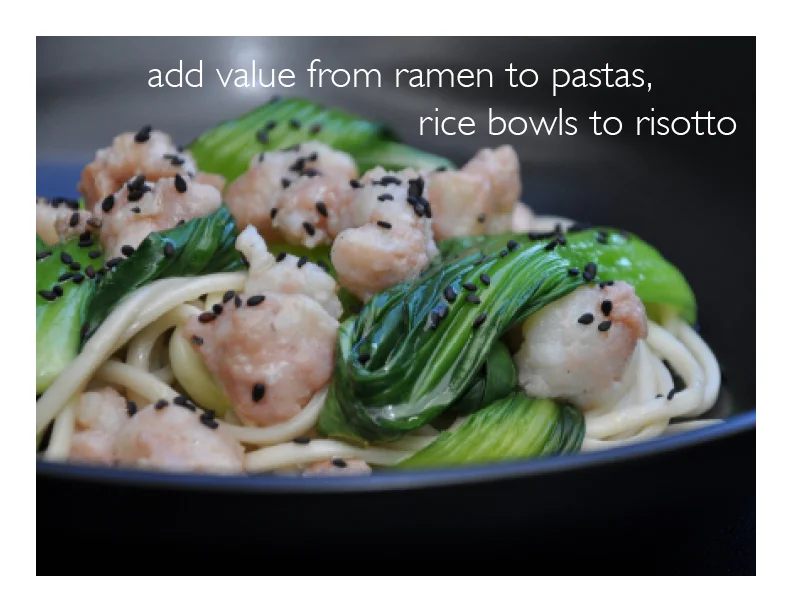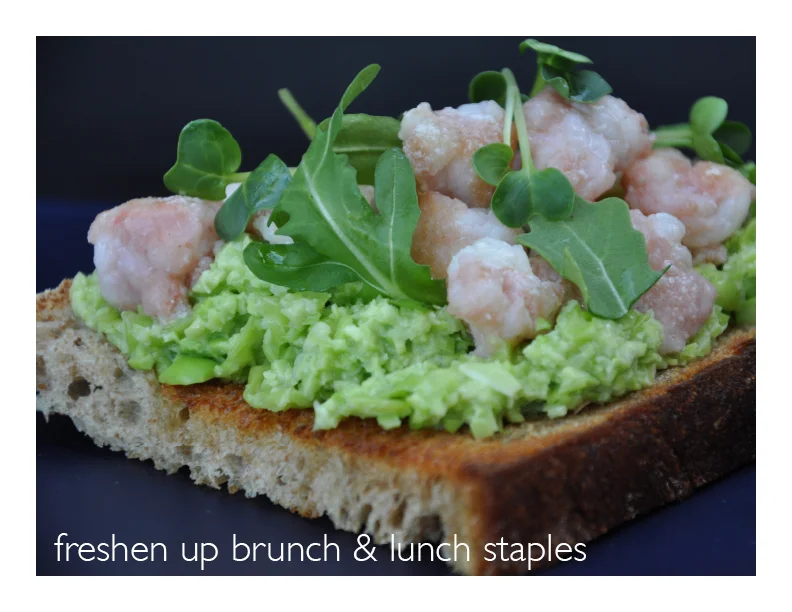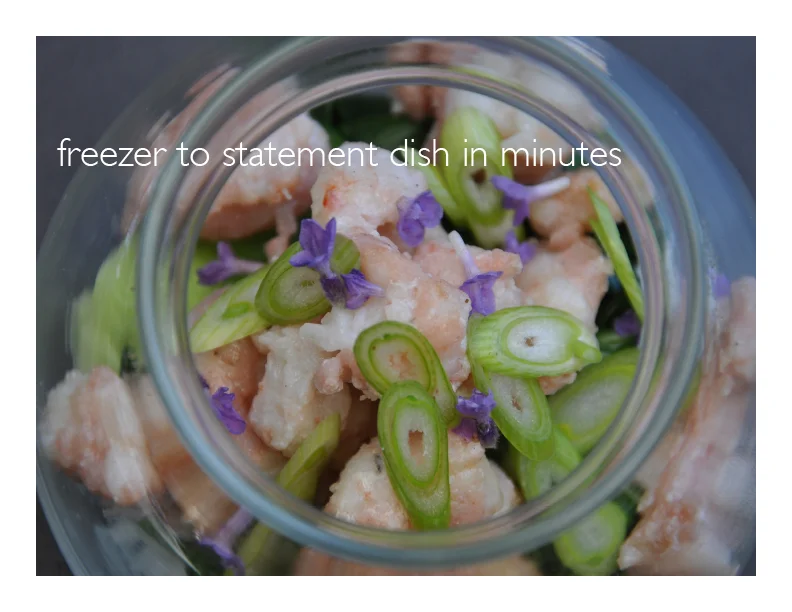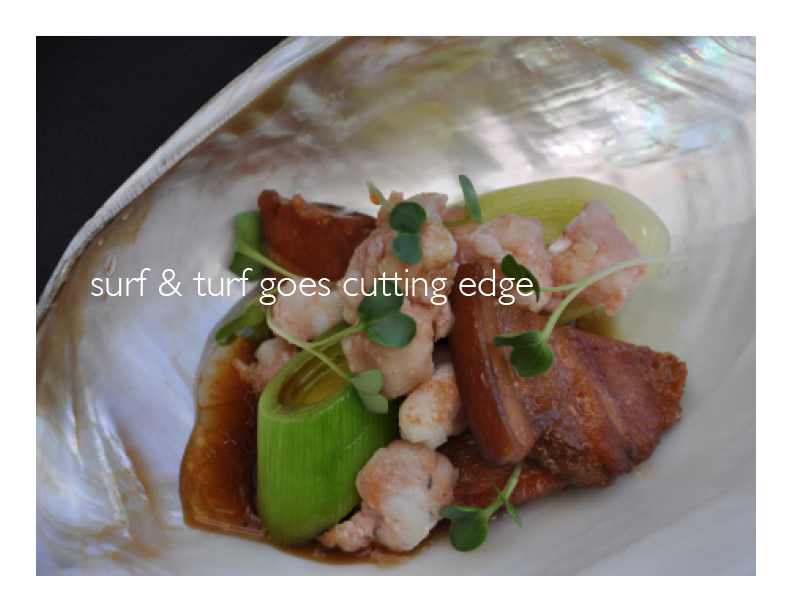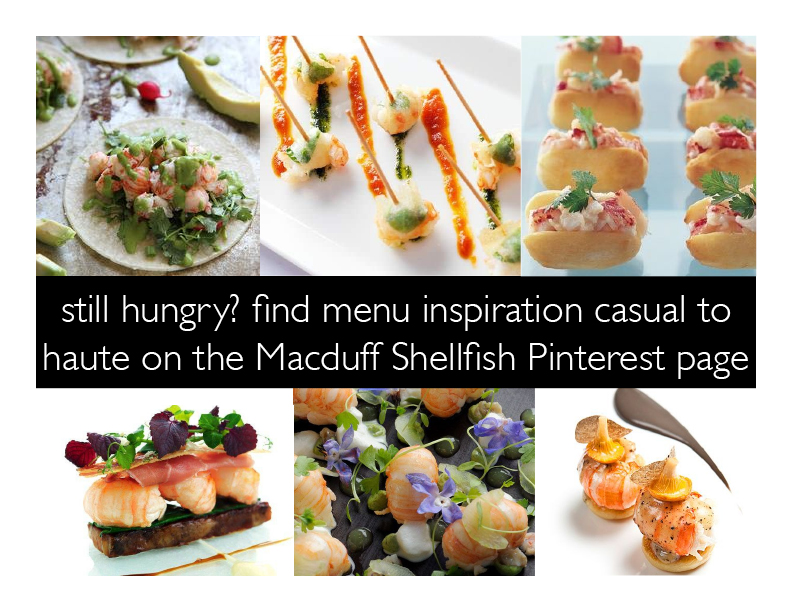Just in time for Seafood Expo North America in Boston (SENA 2015), Polished is working with Scottish company Macduff Shellfish to launch a new product to the North American market — frozen clusters of Scottish langoustine tail meat chunks.
The langoustines are wild-caught from a well-regulated fishery. The meat is not treated — just straight-up frozen shelled langoustine meat. The clusters are small, so chefs can quickly thaw just what they want to use.
Quick thaw, Quick cook Pre-shelling means no labor in the kitchen and the tender, delicate meat cooks up in minutes. And because its frozen, chefs can keep it on hand to always have something for specials or a knock-out dish for a surprise VIP.
Menu Versatility Langoustine meat is at home cozied up to caviar as it is at the bar in a deviled egg, and it can be used to replace crab or shrimp in a variety of dishes. Check out the slide show — styled and shot by Polished — for inspiration. And if you're still hungry, there's more from around on the web on the Macduff Shellfish Pinterest page.
